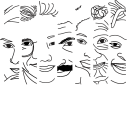The Service
The Multicultural HIV and Hepatitis Service (MHAHS) works with culturally and linguistically diverse (CALD) communities in NSW to improve health and well-being in relation to HIV, hepatitis B and hepatitis C.
The service works with more than 20 language groups and implements a range of health promotion, community development and media initiatives, as well as offering individual assistance to people living with HIV.
The Service is based on the principle that appropriate and equitable access to health systems for people from CALD backgrounds requires an understanding of culture and language. MHAHS recognises that community participation and cultural input are central to better health for people from CALD backgrounds.
We also work with staff and agencies in the HIV and hepatitis sector to build cultural awareness and help them work with people from CALD backgrounds.
Our Mission
“To work with and empower culturally and linguistically diverse individuals and communities in NSW to improve health and well-being in relation to HIV, hepatitis B and hepatitis C; to encourage other agencies to respond appropriately and equitably to affected communities; to work collaboratively, embrace innovation and demonstrate leadership in responding to emerging needs.”
Our Staff
The Service employs staff from more than 20 language groups to “co-work” with other health care professionals in a support, education or community development role. They are from priority African, Asian, European, Middle Eastern and Latin American communities.
Our Cultural Support Workers come from a wide variety of professional backgrounds and are selected for their language and cultural skills as well as their sensitivity to HIV and viral hepatitis issues. They are diverse in terms of age, sexuality, gender and life experience and receive on-going training and supervision. The Cultural Support Workers are integral to ensuring cultural input and facilitating community participation in our work.
Client Support
The Client Support Program provides psycho-social support to people living with HIV.
Clients can self-refer or can be referred by any individual or agency. All referrals are treated confidentially and there is no cost to the client.
Support is provided through our Cultural Support Workers, who assist clients with issues including accessing the health care system and other HIV services, emotional support, liaising with case managers and other health care workers, and facilitating discussions regarding treatment issues.
The Client Support Program is available in the Sydney metropolitan area. However, it may be possible to provide support to clients living outside these areas.
To make a referral, call (02) 9515 1234
Multilingual Information
We produce a comprehensive range of resources about HIV, hepatitis B and hepatitis C testing, treatment, prevention and support in a number of languages. The resources are free and available to individuals and all our allied agencies on our website.
Media
Media campaigns are conducted in partnership with the ethnic media to raise awareness of issues related to HIV, hepatitis B and hepatitis C. Activities include publicity, advertising and providing bilingual/bicultural spokespeople.
Community Engagement
Our community engagement initiatives recognise that the best responses to HIV, hepatitis B and hepatitis C often come from the communities themselves. We work in partnership with different communities to develop culturally appropriate strategies that respect the cultural values of each community whilst aiming to reduce the impact of HIV, hepatitis B and hepatitis C.
Workforce Development
The MHAHS assists agencies in the NSW HIV and hepatitis sector to enhance services and programs for clients from CALD backgrounds. We also provide training for multicultural health and community workers to improve their knowledge of HIV and viral hepatitis.
Health Promotion
We conduct a range of HIV and viral hepatitis health promotion initiatives targeting priority CALD communities. Conducted in partnership with key community and sector based agencies these include developing information in community languages, community education, forums and other community engagement activities.
For more information contact the MHAHS:
Phone (02) 9515 1234
Email
Facebook www.facebook.com/TheMHAHS
